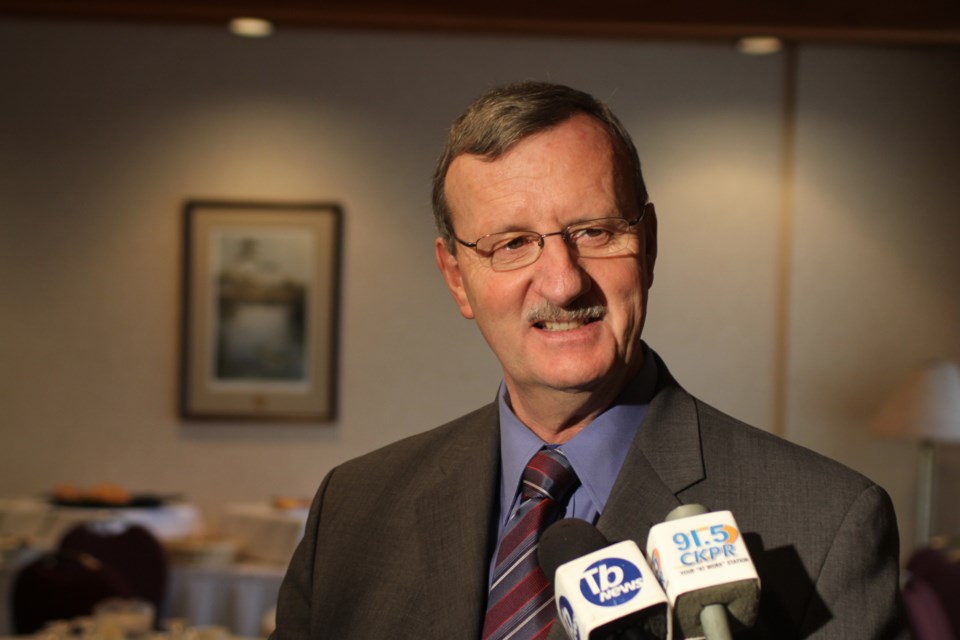There is more to look at than just how many active cases of COVID-19 there is in a community to determine which regions in the province will open first, said Ontario's chief medical officer of health.
Dr. David Williams said due to increased data coming from a new testing strategy, health officials are getting a better picture of what's happening in nearly real-time across the province. About two-thirds of COVID-19 cases are focused around the Greater Toronto Area, and some health units, such as those in Northern Ontario, have not reported any new cases for two or three weeks in a row.
You can watch the full press conference below.
While that's encouraging, Williams said they have to be careful in determining which parts of Ontario can open first, because if cases started to surface again in remote communities in the North, especially where there are border crossings, it would be very difficult to contain the spread of the virus.
"We do not want to take that risk," Williams said. "It's not just some numbers at one time, it's a wider picture that we have to consider."
The idea of a regional approach to reopening is an about-face for Premier Doug Ford, who only a day ago, was adamantly against such a move.
When reporters asked the premier during his livestream update today, Ford said the fight to flatten the curve is a team approach.
"I take the advice of my health table, and I'm not going to go against the advice of medical professionals in this," Ford told reporters.
"We have more testing, and a better scope of what's happening around the province, and that's what allows us to make these decisions. COVID-19 moves so quick, it's fluid and things change from day to day, and I think the worst thing anyone can do in my position is dig in their heels and not be open to ideas."
The province developed a three-stage plan for reopening the economy, and while people are anxious to get back to business, public health has to be the province's No. 1 concern, said Deputy Premier and Health Minister Christine Elliott.
Ontario is in the "post-peak phase" of stage 1, and the province needs to be cautious and measured as it moves forward, she said.
"We need to see the effects on public health with each stage," Elliott said. "We are just now starting to see cases that are probably resulting from the gradual opening of our economy in stage one. That needs to be thoroughly examined, so we can decide at what time we should open up to stage 2 and under what circumstances."
A regional approach to opening is a separate issue, she said, but the timing of the three stages won't be. It will be based on the number of new cases, hospital capacity and contact tracing, and all of this needs to come together for the public health table to make a recommendation that it's time to move forward, Elliott said.
Meanwhile, Prime Minister Justin Trudeau announced the federal government is exploring ways to reunite family members divided by the travel restrictions at the Canada-U.S border.
Despite being very vocal about his desire to keep the border closed to prevent the spread of the virus, Ford said to his understanding, there are about 1,700 families being affected. He told reporters he supports the prime minister's recommendations.
"Nothing is more important than family," he said. "I think it's absolutely critical to reunite families."
